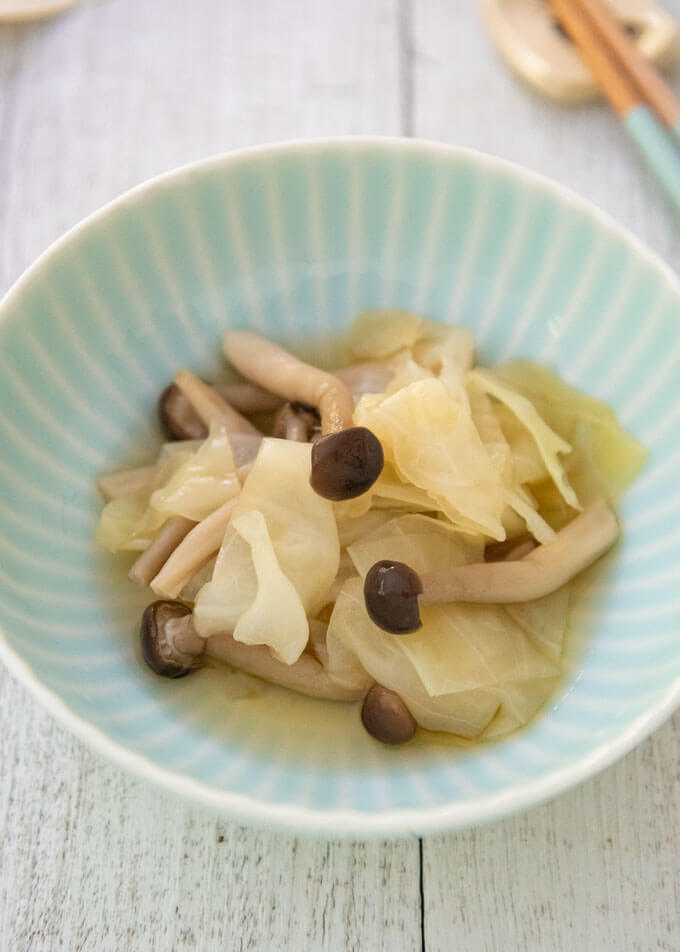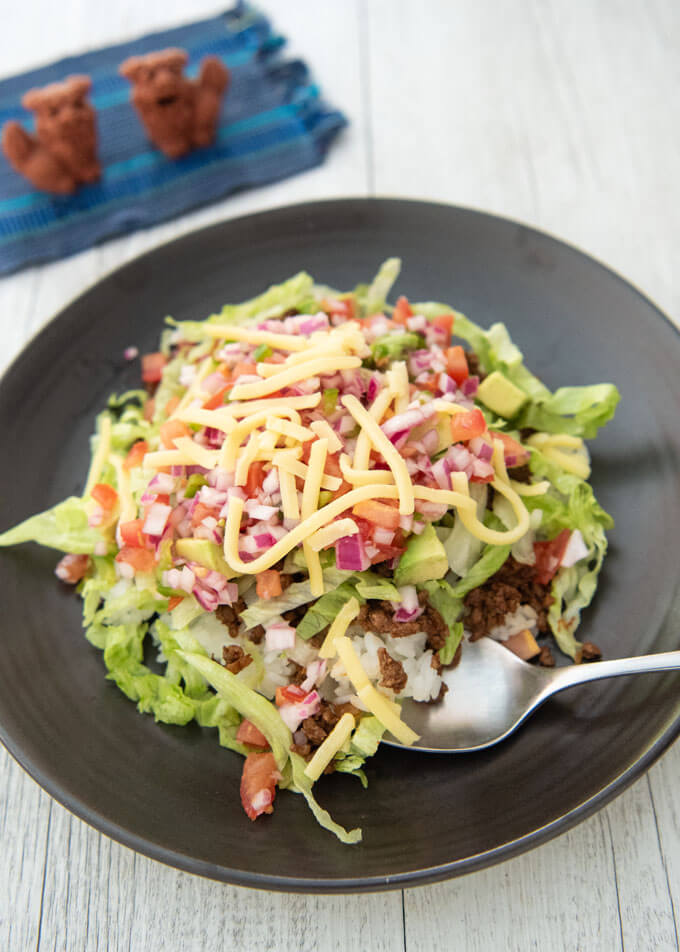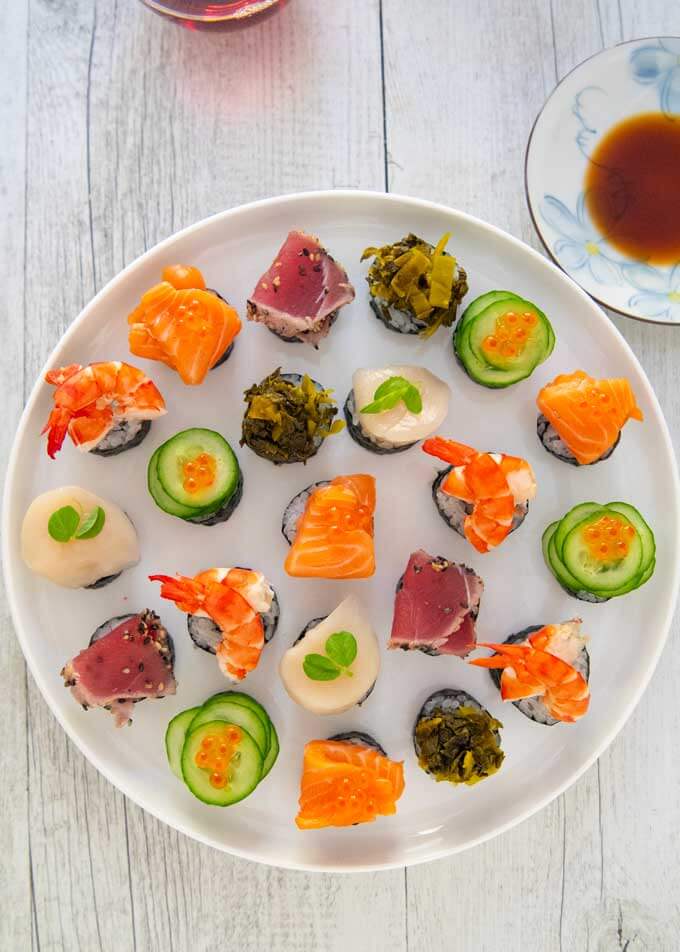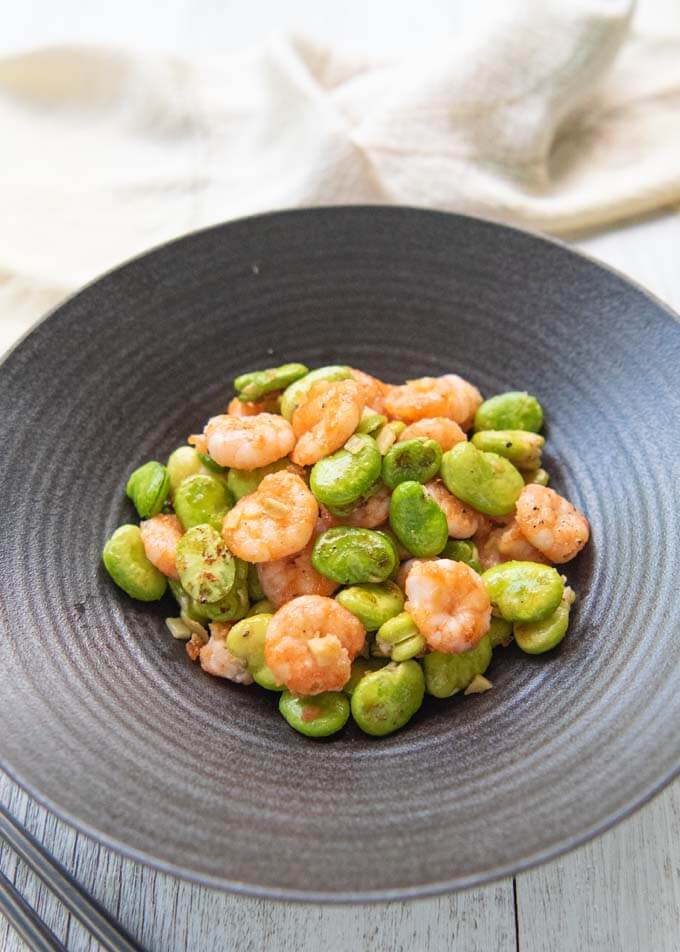Bamboo shoots are in season in Australia, so I thought it would be good to show you How to Prepare Fresh Bamboo Shoots before they disappear from the shops. You simply boil bamboo shoots, but you need to prepare...
Bamboo shoots are in season in Australia, so I thought it would be good to show you How to Prepare Fresh Bamboo Shoots before they disappear from the shops. You simply boil bamboo shoots, but you need to prepare and boil them in a certain way to remove the bitterness in the fresh bamboo shoots.
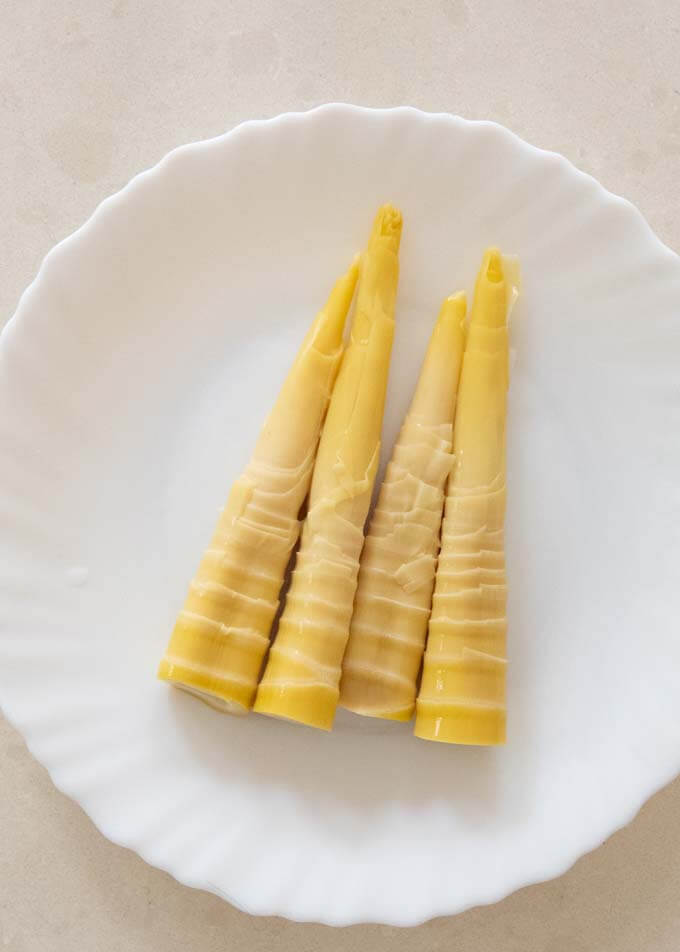
You will be surprised to know how good the flavour of the boiled fresh bamboo shoots is.
In Sydney, fresh bamboo shoots only appear in spring at some Asian grocery stores. They are not yet commonly available at supermarkets, but if you find them at a shop, I strongly recommend getting some. The flavour difference between the freshly prepared bamboo shoots and the canned/vacuum sealed boiled bamboo shoots is huge.
Fat Bamboo Shoots and Thin Bamboo Shoots
I am used to fat and short bamboo shoots, which are most commonly available in Japan (the photo below). These Japanese bamboo shoots are called ‘takenoko’ (???? or ?). Unfortunately, I cannot buy fresh takenoko in Sydney.
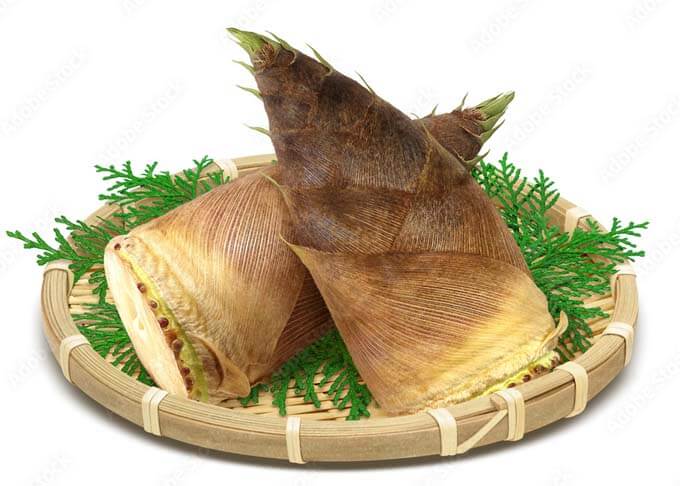
Thin and long bamboo shoots, like the ones I bought recently (the photo below) are called ‘hachiku’ (??) in Japanese, and they originated in China. Compared to Japanese takenoko, hachiku is very thin and long.
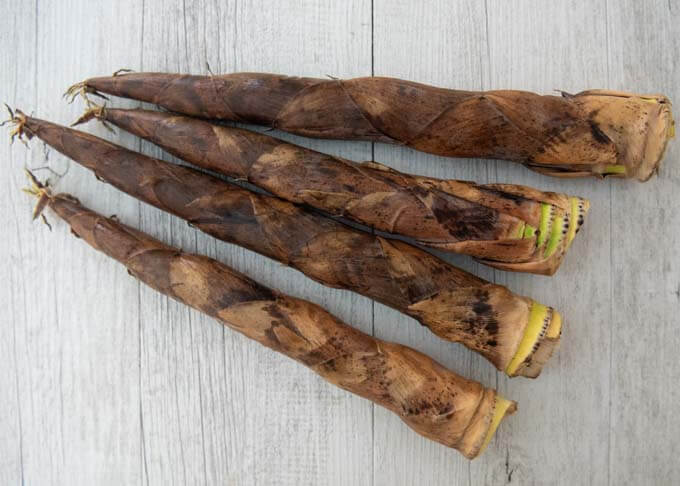
They are not only different in appearance, but also harvested differently.
Takenoko grows mostly underground, showing only the tip above ground. You need to remove the soil around it and pull it out of the ground. Hachiku on the other hand grows above ground, just like the new bamboo shoots come out in your garden. You cut it off at ground level to harvest.
The ratio of the edible part of the bamboo shoot to the whole bamboo shoot is quite low due to the many layers of skins and the hard flesh at the bottom that attaches to the root (rhizome). The edible part of fat & short Japanese bamboo is about 50%. On the other hand, the thin and long Chinese bamboo shoot has much less edible ratio.
The yield of my thin and long bamboo was only about 20%, perhaps because I discarded a large portion at the bottom, which in my view was woody.
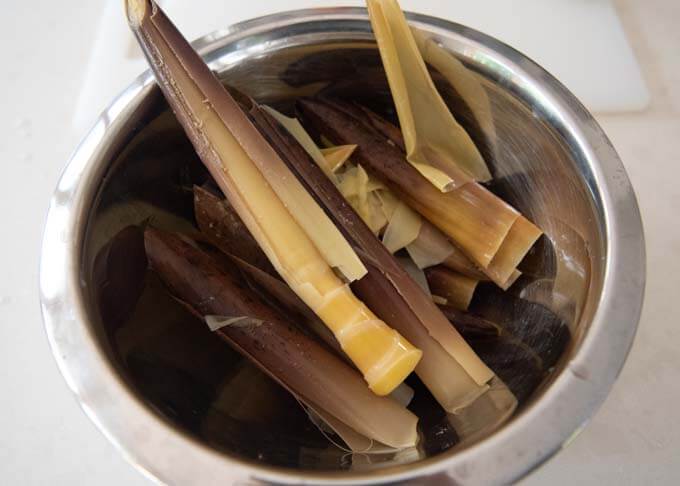
Layers of skins are to be discarded.
Fresh bamboo shoots are not cheap, for the edible quantity you get. But it is worth making a dish with freshly boiled bamboo shoots when it’s in season, because the flavour is nothing like the pre-boiled vacuum sealed/canned bamboo shoots.
Typical Japanese Dishes using Fresh Bamboo Shoots
In Japan, there are a few dishes many people make when they buy fresh bamboo shoots in spring. These dishes bring out the texture and the flavour of the fresh takenoko.
Bamboo Shoot Sashimi (Takenoko no Sashimi, ????):
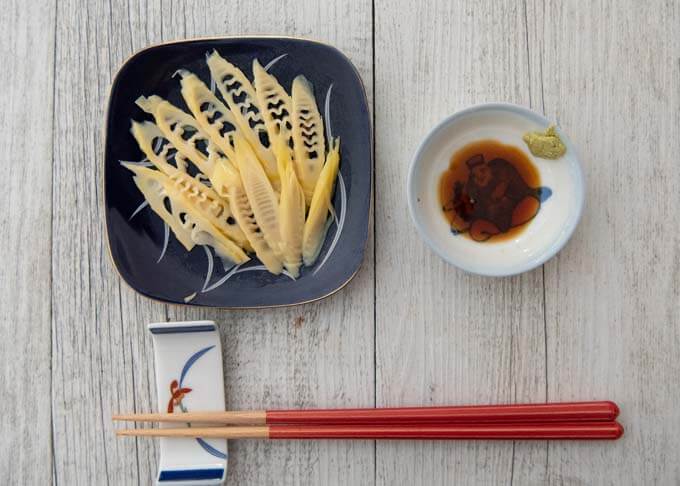
Japanese people make sashimi out of the fish when they catch it out at the sea, because the raw meat tastes the best when the fish is as fresh as catching it yourself. Well prepared bamboo shoots receive the same treatment. The bamboo shoot is very thinly sliced and served with wasabi and soy sauce to dip in.
Rice with Bamboo Shoots (Takenoko Gohan, ????? or ???):
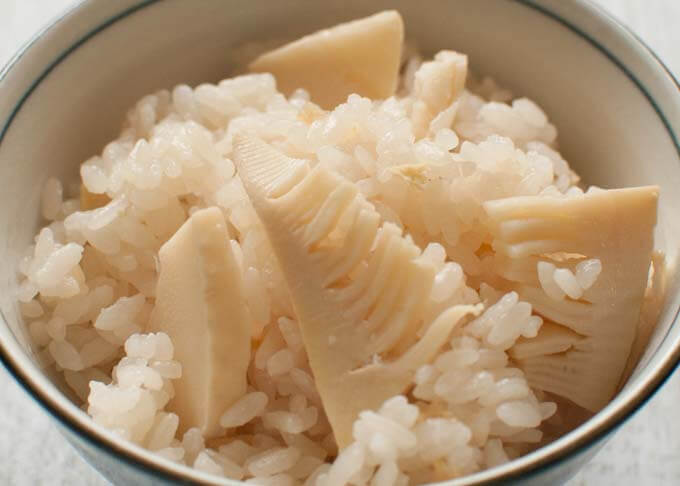
As described in my post, takenoko gohan is one of the popular spring rice dishes. I posted this recipe 5 years ago. Back then I had to use vacuum sealed boiled bamboo shoots because fresh takenoko was not sold here. Next time when I buy fresh bamboo shoots, I will certainly try takenoko gohan with them.
Simmered Bamboo Shoots with Wakame Seaweed (Wakatake-ni,???):
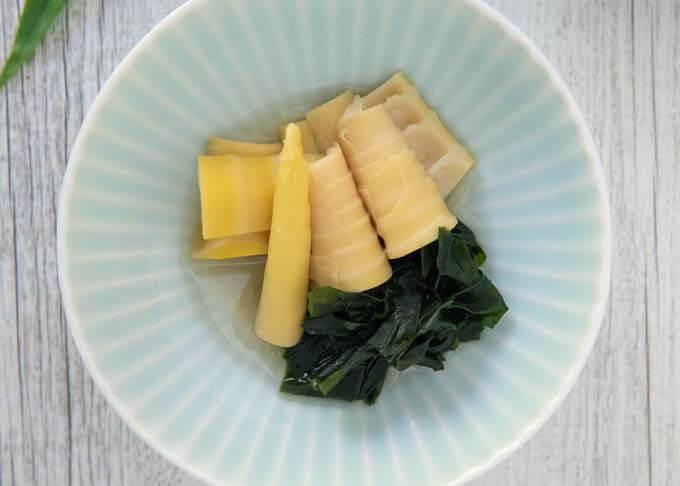
Boiled bamboo shoots are cut into bite size pieces and simmered in a lightly flavoured dashi stock. Chopped wakame seaweed is added to the simmering broth just before turning the heat off. It is an elegantly flavoured dish.
I will post this recipe in near future.
Bamboo shoots simmered with Bonito Flakes (Tosa-ni, ???):
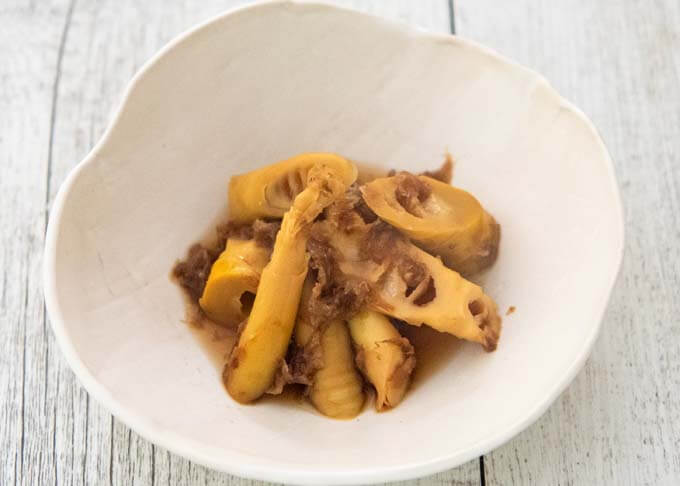
It is yet another simmered dish, but it obtained the name ‘tosa-ni’ because plenty of bonito flakes are used in this dish. Kochi prefecture, which used to be called ‘Tosa’, is famous for bonito fishing and many dishes with bonito, including bonito flakes, tend to be named with a prefix ‘tosa’. The flavour of Tosa-ni is stronger than that of Wakatake-ni, but it goes well with the neutral flavour of the bamboo shoots.
This is another recipe that I need to post one day.
What you will need to Prepare Fresh Bamboo Shoots
In the case of thin Chinese bamboo shoots, you could simply boil them if your bamboos are very fresh, thin, and young.
On the other hand, Japanese bamboo shoots must be boiled in a certain way, because they have a harshness with a slight bitterness in the flesh that comes from the oxidation of an amino acid called tyrosine and oxalic acid. The harshness starts developing as soon as bamboo shoots are harvested.
Rice bran/white liquid from washing rice neutralises these substances in the bamboo shoots.
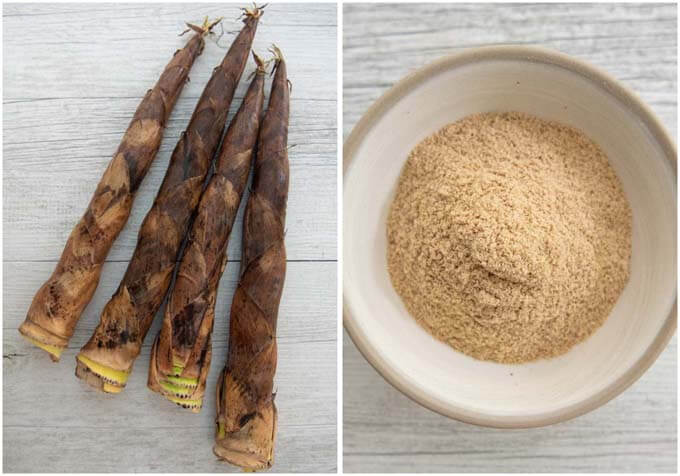
The traditional Japanese method of boiling bamboo shoots is the first option, i.e., use rice bran (photo above). My long and thin bamboo shoots may not need to boil this way, but I would like to show you how it is done.
How to boil bamboo shoots
You will boil the bamboo shoots with the skins on, but you need to do some preparation.
Preparing bamboo shoots before boiling
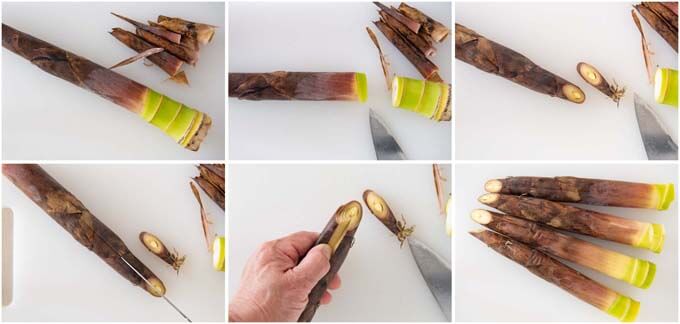
Boiling bamboo shoots and storing them
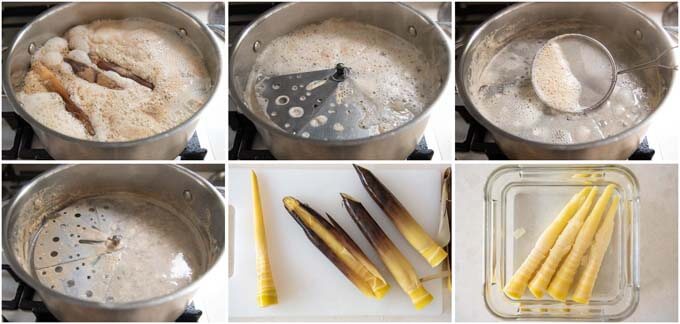
If you use white liquid from washing rice, the pot with bamboo shoots looks like this.
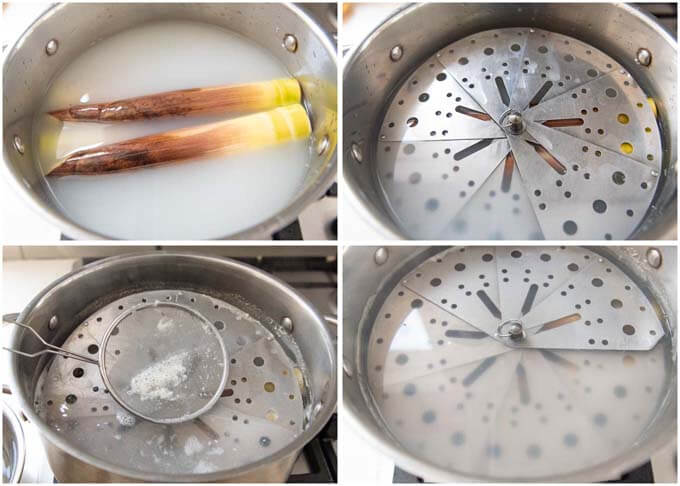
You can keep boiled bamboo shoots in the fridge for up to 1 week.
I hope you try boiling fresh bamboo shoots when you see them on the market in spring.
Yumiko![]()
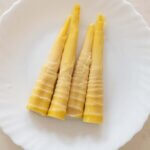
How to Prepare Fresh Bamboo Shoots
Ingredients
A large pot that can fit in your bamboo, filled with one of the following options (note 2):
Option 1
20cm/8" deep water1 cup rice branOption 2
20cm/8" deep white liquid that you get when you wash riceOption 3
20cm/8" deep water½ cup unwashed riceOption 4
20cm/8" deep waterBaking soda (ratio of 1 tsp to 1L water, note 3)Instructions
Preparing Bamboo Shoots
Boiling Bamboo Shoots
Notes
The post How to Prepare Fresh Bamboo Shoots appeared first on RecipeTin Japan.





